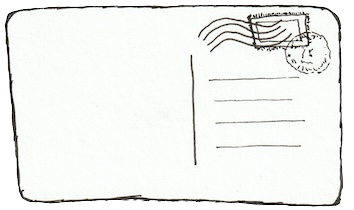Farm: Lot 23
Tonya Lailey
Tonya Lailey’s Farm: Lot 23 explores the complex relationship we have with land, particularly as it relates to agriculture. Her poems depict the spectrum of human experience that plays out on the stage of the family farm—love, desperation, triumph, folly, caution, greed—and the real impacts that technology, economics and shifting cultural values have on both the people and the land. Lailey reminds us that the fates of culture and agriculture are inseparable, that “the purpose / of a farm / of a poem / has always been / the living in it.”
Ask your local library if they would add it to their collection
2024 / Canadian Poetry / $25.95
9781554472628 / Trade paper / 128 pp
Farm: Lot 23
By Tonya Lailey
These are sharp poems, composed with enormous thought and care, composed as both portrait and a love letter to an eroding space. …
Lailey offers such a soft and subtle music articulating a working farm from the inside, not merely as reminiscence but contemporary, working and lived-in space.
There’s a thickness, a density, to her detail, one that embraces the lyric but carves the lines so precisely to hold all that is required, but without sacrificing her music. She writes a precision to her lushness, on seasonal crops of cherries, peaches, pears and plums.
Farm:Lot 23 is a poet’s book of poetry. What I mean by that is that poets who read it will revel in Lailey’s focused playfulness with the craft. Her writing is very specific, and all the ways she makes poetic form work and expand mirror the topics of the book - work itself, labour, and the specific but expansive love of her childhood family farm and the people she knew there.
From the vibrant way nouns become verbs in “No Trespassing” where “American toads pond the pool” and “Cedars fur the north property line”, to how she captures a haiku-like meditation from stillness in “Under a Cherry” but does so with a kind of playful position of self-observance that Lailey is amazing at, to the brilliant work with couplets in her long form “Farm Photo”; they way the couplets create a sense of polaroids being developed, slowly, with just enough time to develop the full image, Lailey is confidently and artfully engaged with poetics and a savvy reader will be excited and impressed.
And then, the impact of all that attention to how poetry works pays off in how the reader feels the poems. Lailey creates a sense of good-hearted, elegiac celebration. Readers will come to love the vineyards and people of her family farm with as much soul and gut and heart as the poet herself reveals.
- Juleta Severson-Baker
Author of Antecedent, Frontenac House (2023)
One of the great pleasures of reading is the chance to enter lives other than the one we live. Tonya Lailey’s Farm: Lot 23 offers an astonishing intimacy with the vocabulary and sensations of a small family farm, the songs of its stone fruit cultivars, the sweat when “harvest is the inner humidity of a raincoat.” If I’m first struck with delight by a Whitmanlike impulse to inventory each particular (tractors, roads, creatures), I find still more to admire in a resolve I associate with writers like Ross Gay and Lia Purpura: to trace paths of contiguity, take in the full picture, dig into the history, look beyond the tidy snapshot. Lailey traces exploitative policies that brought Jamaican migrant workers to Canada on “closed work permits,” borders built by treaty, esters shared by “fox piss” and Labrusca grape. Through it all, these poems sing! Lines like “we bring vine wood to the wire with twine” are sweet in the mouth as cherries, while sentences like “Or juice will drip from the rag of a botched starling pluck, slip out the gash a clipper blade made, follow the ooze of a rot patch,” slide strange along the tongue, as mysterious, alchemical, and inebriating as the grapes they describe.
- Bronwen Tate
Author of The Silk the Moths Ignore, Inlandia Books (2021)
Assistant Professor of Teaching in the School of Creative Writing at the University of British Columbia,

